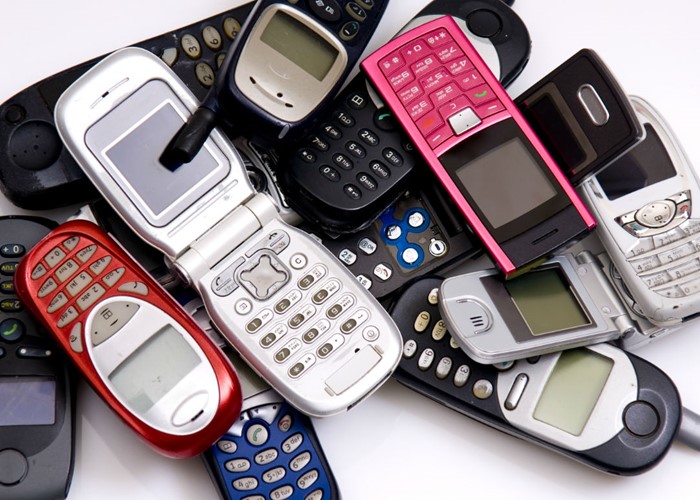Will your mobile phone replace your credit card?

Barclaycard has signed an exciting deal with Orange to bring mobile payments to the masses.
Barclaycard has announced a ground-breaking tie-up with Everything Everywhere (owner of Orange and T-Mobile) to launch the UK's first mobile-payments service.
‘Wave and pay’ is on the way
The UK’s largest issuer of credit cards and Britain’s largest network operator plan to launch their joint venture -- which uses contactless technology to process payments up to £15 -- this coming summer.
Instead of swiping their credit or debit cards, Orange customers with a contactless mobile soon will be able to pay for anything from a sandwich to a bus ride simply by waving their handset at one of over 42,000 contactless tills. By using short-range wireless technology known as Near Field Communication (NFC), retailers can collect small payments without relying on outdated plastic-card equipment.
More and more businesses and high-street retailers already use contactless technology to process ‘proximity payments’, such as Caffè Nero, the Co-op, Little Chef, Pret a Manger and the National Trust. In 2009, O2 ran a trial in London replacing Oyster cards with mobile payments, and similar trials have been conducted by the likes of Boots, Coffee Republic and Poundland.
Your mobile wallet
Already, there are 11.6 million contactless credit and debit cards in the UK, with this number set to leap as cards are renewed and replaced. However, although consumers are becoming increasingly familiar with contactless payments, this initiative will be a big step forward.
Indeed, the Barclaycard/Orange deal will be the UK’s first national roll-out of so-called ‘m-payments’ (mobile payments). What’s more, the 2012 Olympics is seen as a vital testing ground for such services, with tickets, transport fares and other transactions expected to be processed in this way.
For security and convenience, users of contactless NFC-enabled phones will not be able to process m-payments above £15. Although this limit will allow most everyday transactions, it is sure to be raised as m-payments catch on.
John Fitzsimons looks at three simple ways to cut the money you spend on your mobile each month
Will cash become clumsy?
To me, combining cash and communications in a single technology is an obvious step in the right direction. Indeed, by 2050, the Payments Council predicts that cash could go the way of cheques, gradually being used less and less often for everyday transactions.
After all, most of us take our mobiles wherever we go 24/7, which is more than can be said for wallets and purses. In time, mobile payments should become a simple, effective substitute for cash and cards, which means no more jangling change or hard-to-find notes. (Alas, a smartphone is no substitute for a plastic card for scraping frosty car windscreens in winter!)
That said, as smartphones gradually replace other payment methods, we must to watch over our handsets as though they were a pile of £20 notes. Likewise, British businesses need to jump on this bandwagon in order to boost the uptake and general acceptance of m-payments by the public.
Your guide to m-payment slang
Although m-payments are in their infancy, banks, handset manufacturers, network operators and technology firms are eager to get mobile wallets up and running. Given that four in ten mobile users already use mobile-banking services, the pent-up demand for m-payments must be huge.
Thus, consumers will be keen to try out a service that, in the Nineties, would have been seen as space-age technology. In fact, according to Barclays, mobile-banking users use a whole new vocabulary to describe this technology on social-networking site Twitter.
Here’s your quick guide to m-banking jargon:
|
Meaning |
Slang/Tweet |
|
Transfer or pay |
Drop, Ping, Pop or Swipe |
|
Small sum of money |
Shrapnel |
|
Money |
Dosh |
|
Direct debit |
Debby |
|
Overdrawn |
In the red |
|
In credit |
In the black |
Source: Barclays, from 1,060 Twitter users polled this month.
Please feel free to add your favourite electronic-banking slang to this list, using the comment boxes below. To get the ball rolling, I would add ‘mop up’ (an ‘m-top up’ to your prepaid account), ‘PBW’ (pay by wave) and ‘mPay’ (mobile payment).
In summary, this time next year, one wave of your smartphone could buy you a coffee, sandwich, cinema ticket or cab ride. Sure, m-payments won’t kill off plastic cards overnight, but I predict we Brits will embrace this latest leap even more enthusiastically than we did ATMs (cash machines), online banking and mobile banking.
More: Find your perfect credit card today | Credit cards for every occasion | Cyber-crooks steal personal secrets
Comments
Be the first to comment
Do you want to comment on this article? You need to be signed in for this feature